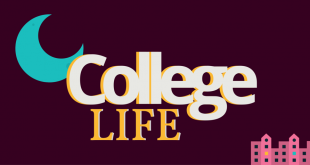Written by Kayla Stroud, Web Editor
Social media is a powerful tool in the job searching process. After narrowing down prospects, sites such as Facebook, Twitter, and Pinterest give employers an in-depth look into how potential staff members truly act outside of the stiff confines of a resume or cover letter.
In today’s ever waning job market, a resume and a basic cover letter only hold so much weight. And for college students with a lack of experience who are looking to bolster the likelihood of getting a job, having a social media presence is beneficial. Frankly, you need all the help you can get, so why not join the rest of the social networking trend? However, there are certain limitations in how you go about doing this.
A simple post can either help you land that coveted dream job or send future employers running for the hills. There are thousands of stories – both publicized and not– of people missing out on job opportunities because of stupid Twitter postings or an unfortunate Tumblr update. As someone in the job hunt, you need to chill with the excessive cursing rants and scandalous party pics on your Facebook wall. While you don’t have to hide your true identity, you need to be aware of the image that you want to portray. Social media can be used in branding yourself. And being brandished with the label of “party girl” or “obnoxious guy” is never a good look in an employer’s opinion – whether that title is warranted or not. It wasn’t even a decade ago when a simple Internet post didn’t have such crucial ramifications while in the job searching process. Nowadays? It’s considered outside the norm for an employer to NOT go perusing around a job hopeful’s social media account. In 2015, Careerbuilding.com conducted a survey and found that 52 percent of employers use social networking sites to research job candidates, up significantly from 43 percent last year and 39 percent in 2013.
You need to be able to differentiate yourself from the stack of resumes currently collecting dust on an intern’s desk. After going through said stack, these employers will need to see more of you. Virtual resume building sites like LinkedIn are also part of social networking. They display even the most menial of accomplishments that will earn a bosses approval. You earned a Microsoft certificate in high school? Include that. That 15 odd hours of community service that you spent cleaning up dog crap last year? Put that down.
While not having an online presence isn’t the end-all-be-all, you must keep in mind that employers are sifting through dozens of resumes. The Careerbuilding survey also revealed that 35 percent of employers are less likely to interview applicant hopefuls that they are unable to find online.
“Researching candidates via social media and other online sources has transformed from an emerging trend to a staple of online recruitment,” said Rosemary Haefner, chief human resources officer at CareerBuilder. “In a competitive job market, recruiters are looking for all the information they can find that might help them make decisions. Rather than go off the grid, job seekers should make their professional persona visible online, and ensure any information that could dissuade prospective employers is made private or removed.”
Companies aren’t just going through your social media accounts to find dirt. While in the process of going through your Facebook, prospective employers may come across something that can put you ahead of the competition.
Sometimes based on your social networking activity you can even make your OWN employment. Instagram models and Viners ring a bell? If you do it correctly you can gain a following, leading you to a mountain of money. However, that’s pretty rare so don’t hold your breath.
What you post can both hurt and help your prospects of getting a job; that can affect you in the job hunt. Be sure to remember kids: Think before you post. Because once it’s out there, it’s forever – whether you delete or not.
—
3 Obvious but Overlooked Social Media Don’ts:
1. Typo’s.
–You want to keep your social media accounts open to the public knowing while also sending out resumes? You want to get a big kid job? Then act like one. You don’t have to completely suck the personality out of your posts, simply cut the typos and harsh language down. It’s that simple.
2. Don’t badmouth current or past employers
–Why should prospective employers want to hire someone who talks trash about their former bosses? This is obvious.
3. Lay off the party pics
–Okay, so you want to show off how much wasted-fun you had barhopping last weekend? That’s cool, but just be aware that as soon as you post that potential employers might not view it that way.
 The Spectator The independent student newspaper of Valdosta State University
The Spectator The independent student newspaper of Valdosta State University






